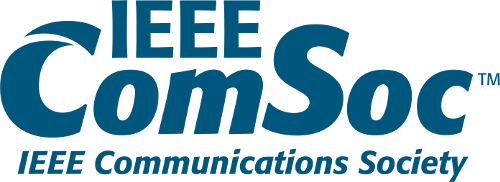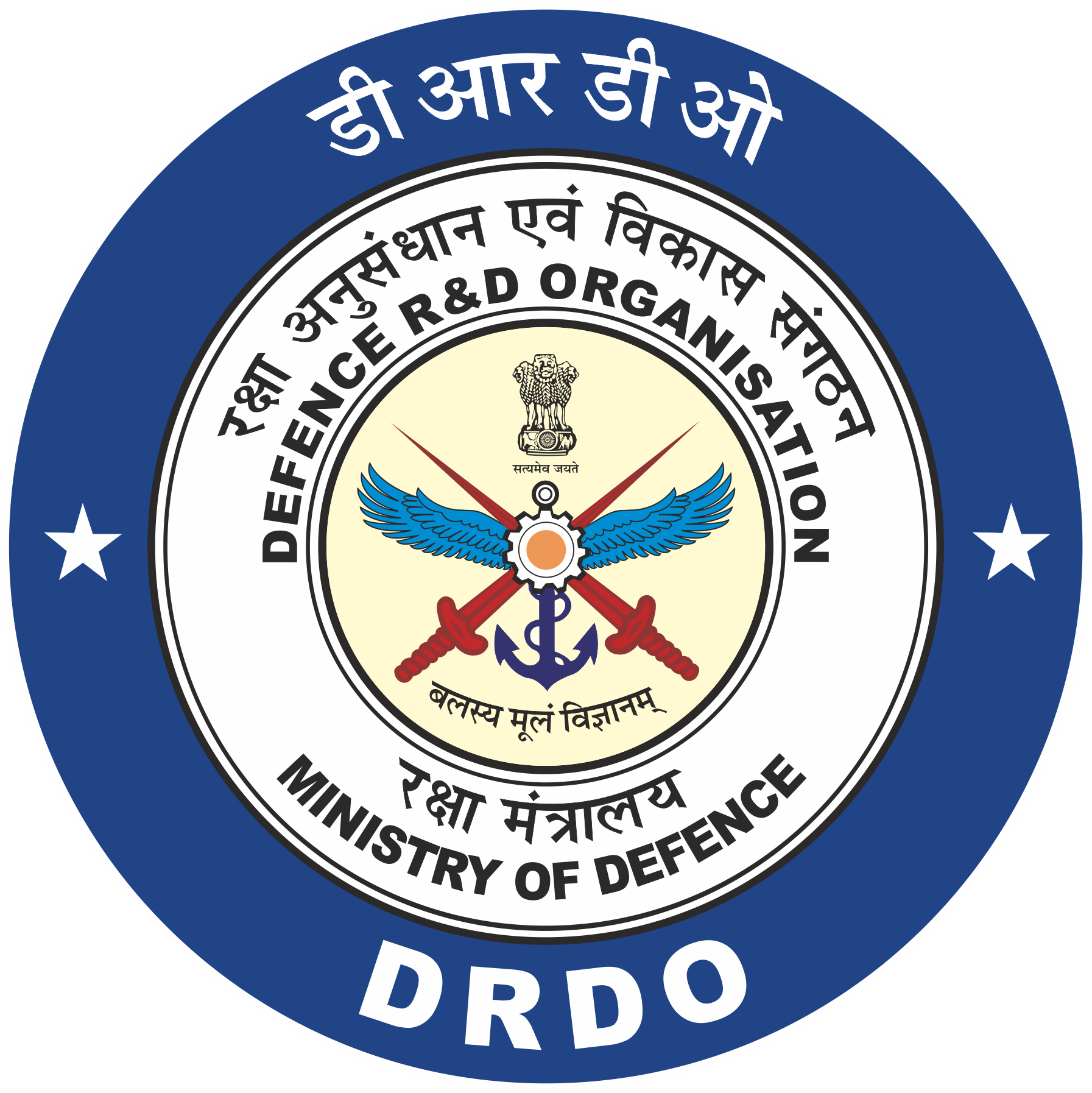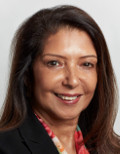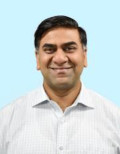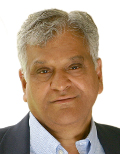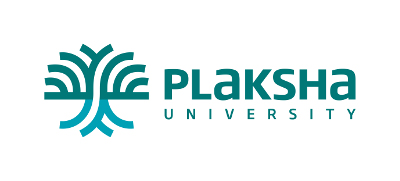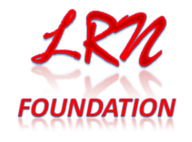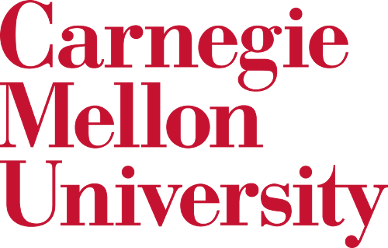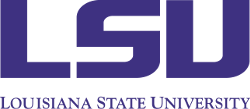Workshop on Networking Humanitarian Technology for Healthcare (NetHealth)
All workshops will be conducted in a hybrid mode. However, we strongly encourage physical attendance (including delegates/authors/speakers/chairs and OC members) for the workshops, especially if you are in India. There will be travel grant opportunities for authors traveling from within India.
Theme: NextGen Affordable Connected Healthcare and Challenges
Schedule
| January 4, 2022 | ||
|---|---|---|
| Venue: Sigma Hall 1 | ||
| Time | Title | Speaker/Authors |
| Session 1 | ||
| 9:30- 9:45 | Detecting and Predicting Sleep Activity using Biometric Sensor Data | Maxwell Kleinsasser, Bronson Tharpe , Neelam Akula, Harshitha Tirumani , Rajshekhar Sunderraman , Anu Bourgeois |
| 9:45-10:00 | ML-Based Device-Agnostic Human Activity Detection with WiFi Sniffer Traffic | Harshit Grover, Dheryta Jaisinghani, Nishtha Phutela, Shivani Mittal |
| 10:00 - 10:30 | Keynote Talk: Tech enabled Healthcare for 1.3 Billion - Bridging the Urban and Rural Divide | Mr. Rajat Garg |
| 10:30 - 11:00 | Keynote Talk: Design of Healthcare 4.0 Platform Models | Prof. N Vishwanadham |
| 11:00 - 11:30 | Networking over Tea/Coffee | |
| 11:30 - 12:00 | Invited Talk: Mobile and Embedded Sensing Systems for Healthcare Applications | Dr. JeongGil Ko |
| 12:00 - 12:30 | Invited Talk: How We Built Machine Intelligence To Help Doctors Save Lives | Mr. Zainul Charbiwala |
| 12:30 - 1:00 | Invited Talk: Building Real World AI for COVID-19 using Heterogeneous Datasets | Dr. Tavpritesh Sethi |
| 1:00 - 2:00 | Networking Lunch | |
| Session 2 | ||
| 2:00-2:15 | A Comparative Study between ECG-based and PPG-based Heart Rate Monitors for Stress Detection | Anuja Achyut Pinge, Soumyadip Bandyopadhyay, Surjya Ghosh, Sougata Sen |
| 2:15-2:30 | Mental Health Analysis of Employees using Machine Learning Techniques | Sujal BH, Neelima K, Deepanjali C, Bhuvanashree P, Kavitha Duraipandian, Sharanya Rajan, Mithileysh Sathiyanarayanan |
| 2:30-2:45 | HRV and GSR as Viable Physiological Markers for Mental Health Recognition | Shikha, Aryan, Lovish Arya, Divyashikha Sethia |
| 2:45-3:00 | Research Study and System Design for Evaluating Student Stress in Indian Academic Setting | Pavan Kumar Reddy Yannam, Vineet Venkatesh, Manik Gupta |
| 3:00 - 3:30 | Networking over Tea/Coffee | |
| Session 3 | ||
| 3:30 - 4:15 | Panel discussion: Next Generation Health Care Challenges - Impact on society & Individuals | Mr. Manoj Sanker |
| Dr. Shyam Vasudev | ||
| Dr. Abhishek Appaji | ||
| Dr. Sanjay Sood | ||
| 4:15 - 4:45 | Keynote Talk: Cognitive Informatics in Healthcare: Promises and Challenges | Prof. Vimla L Patel |
| 4:45- 5:15 | Invited Talk: AI for Mental Health | Dr. Chandramauli |
| 5:15-5:45 | Invited Talk : Thread diagnostics: sensors, circuits, microfluidics and drug delivery | Prof. Sameer Sonkusale |
| 5:45 - 6:00 | Closing & Best Paper Award announcement | |
Keynote speakers
Vimla L. Patel
Prof (adjunct) Biomedical Informatics at Columbia University, New York and College of Health Solutions at Arizona State University (ASU) in Arizona.Senior Research Scientist and Director, Cognitive Studies in Medicine and Public Health, New York Academy of Medicine
Visit Homepage
As we embrace emerging next-generation technological advances intended to deliver more affordable care, social and cognitive factors, focusing on the users, must be a significant part of the discussion. This requires understanding and using principles from cognitive informatics, the field that focuses on human cognition (processes) and the design of engineering solutions that can improve human activities. Although the potential of advanced technology in health settings is extraordinary, numerous possible pitfalls present challenges. These include issues of appreciating context for measurements from sensor-based technology, using non-representative and thereby biased population data, and applying machine-learning algorithms to mine large data sets without adequate attention to demographic and similar imbalances. All of these issues can hinder reproducibility in results, threatening the essence of the scientific method. Engineering innovations may work well in a highly controlled research setting and then fail when implemented in the real world. I will discuss some of these problems and promises, emphasizing the role of cognitive issues in both design and implementation. Examples will include technology evaluations carried out (a) in complex clinical settings (emergency care) and (b) in mental health assessment programs that use affordable mobile technology in low-income countries.
Professor Vimla L Patel is a professor (adjunct) of Biomedical Informatics at Columbia University in New
York, and the College of Health Solutions at Arizona State University (ASU) in Arizona. She is also a
Senior Research Scientist and Director of the Center for Cognitive Studies in Medicine and Public
Health at the New York Academy of Medicine. A graduate of McGill University in Montreal, Canada, Dr.
Patel was a Professor of Medicine and Psychology and Director of McGill Cognitive Science Center. From
2007-2009, she served as the Professor and Chair of Biomedical Informatics in the Ira Fulton School of
Engineering at ASU. Her early research related to cognitive mechanisms underlying expertise and
medical decision-making. Her studies over the past two decades are on decision support technology and
errors in complex clinical environments, addressing the role of cognition in biomedical informatics
(human-computer interaction, cognitive design, distributed cognition, and team decision making) for a
safer clinical workplace.
Professor Patel is an elected fellow of the Royal Society of Canada (Academy of Social Sciences), the
American College of Medical Informatics, and the International Academy of Health Sciences Informatics.
She is the editor of the Springer Book Series on Cognitive Informatics in Healthcare and Biomedicine. She
is on the Journal of Intelligence-based Medicine editorial board and a past associate editor of the Journal
of Biomedical Informatics, and assistant editor of Artificial Intelligence in Medicine. She has 350+
scholarly publications spanning books and journals in biomedical informatics, education, clinical
medicine, and cognitive science.
Rajat Garg
CEO MyupchaarVisit Homepage
Rajat is a serial entrepreneur having founded companies
like Shimply.com and SocialAppsHQ prior to starting
myUpchar.com, India’s biggest and the single largest portal
providing credible information and creating health
awareness in Hindi and 5 other languages. After graduating
from Stanford University, Rajat joined Amazon as a Product
Manager, leading efforts to deliver new initiatives to
enable Amazon’s entry into new markets to drive
incremental traffic to its website.
Rajat’s stint at Amazon was followed by a key role at DataSphere Technologies
where he headed the real-estate segment. That is when the entrepreneurship bug
bit him and Garg started Shimply, an e-commerce venture that sold authentic and
artisanal Indian products sourced from smaller vendors who had limited access.
Soon after the website became operational in Hindi, a sudden spurt was witnessed
with Ayurveda contributing 50% to the business. A little bit of research and the
reason for this spurt was known. The fact that the content was made available in a
language that most Indians communicated had played the trick. This, coupled with
the realisation that ‘healthcare is one of the most researched topic online’, resulted
in the birth of myUpchar.
Rajat launched myUpchar in 2016 to cater to the widespread demand for credible
regional content and consultation services while solving the evils – access,
affordability and availability of good healthcare in India. myUpchar now serves 2
crore users every month and provides a host of services both online and offline.
Rajat graduated from the Delhi College of Engineering and subsequently completed
his Masters in Electrical Engineering from Stanford University.
N. Viswanadham
INSA Honorary Scientist, Indian Institute of Science Bangalore, IndiaVisit Homepage
Healthcare, and more precisely hospitals, are undergoing full scale digital transformation. The underlying benefits
are compelling – from improved patient health outcomes to reduced overall costs and increased competitiveness. It
is important for India to take this opportunity to design Healthcare platform models. India currently ranks 145th
among 195 countries in terms of quality and accessibility of healthcare. Rising income levels, ageing population,
growing health awareness, and changing attitude towards preventive healthcare is expected to boost healthcare
services demand in future. Also, Focus is shifting from health care to health and well-being. There will be a greater
focus on promoting healthy lifestyles, vitality, and wellness; on primary and secondary prevention; and on early
diagnosis.
New technologies such as mobile Internet, IOT, Cloud, Big Data Analytics, 3D printing, Blockchain, Digital Valets,
Drones, and Robots, are creating new industry giants at the cost of old businesses. Use of machine learning and AI is
becoming the new norm for decision making both in Government and Industry. Start-ups in every area such as
Edtech, Fintech, healthcare and entertainment are disrupting well-established institutions such as Banks, Hospitals,
Movies, Universities, etc. We are currently witnessing the industry 4.0 in auto, real estate, IT, Finance, and several
other sectors. We can see the flourishing companies such as Google, Facebook, Amazon, etc. follow the open
platform-based business models collaborating with ecosystem partners. We will soon see the Healthcare industry
transition to 4.0.
Currently Hospitals mainly comprised of a limited number of medical practitioners in nursing homes and small
hospitals. The transition to Healthcare 4.0. involves Electronic medical records, digitation of patient data, Cloud,
Mobile Internet, IOMTs and connected patients, Big data health analytics and AI, ML & block chain. Innovation in
diagnosis and medical treatment and developing personalized medicine.
In this lecture, we propose the platform business model to transform the classical Hospital model which we call
Healthcare 1.0. The service chain consists of rendering healthcare services via Primary healthcare centers,
Community healthcare centers, Public healthcare centers, Multi-Specialty healthcare centers, Emergency healthcare
centers and Mobile and Rural health camps. Diagnostic centers play a vital role in healthcare system. After a brief
introduction to the new technologies, we develop an ecosystem framework for Healthcare service sector that
includes all the stake holders and new technologies. We develop the ecosystem model which gives a 360-degree
overview of the entire healthcare system. and the Governance mechanisms.
This research is of immense importance to policy makers and become highly connected collaborative networks. Our
research is in developing theoretical models for the design of competitive businesses.
N. Viswanadham is INSA Honorary Scientist in the Computer Science and Automation at the Indian Institute of Science. From
1967-1998, he was faculty at the Indian Institute of Science (IISc). Professor Viswanadham was Professor and Executive
Director for The Center of Excellence Global logistics and manufacturing strategies in the Indian school Of Business, during
2006-2011. He was Deputy Executive Director of The Logistics Institute-Asia Pacific and Professor in Department of
Mechanical and Production Engineering at the National University of Singapore during 1998-2005.
He is the recipient of the 1996 IISc Alumni award for excellence in research. He was conferred the Distinguished Alumni
Award in 2009 by IISc. He was awarded the 2012 Prof S K Mitra Memorial Award by the INAE. He is a Fellow of the IEEE, a
Fellow of Indian National Science Academy, Indian Academy of Sciences, Indian National Academy of Engineering, and The
World Academy of Sciences.
Professor Viswanadham has made significant contributions to the areas of manufacturing, logistics and global supply chain
networks. He is the author of Four Textbooks, Nine Edited Volumes, over two hundred forty journal and top tier conference
papers. His current research efforts are on use of new technologies for Future Supply chain network design using blockchains and
smart contracts and design of Competitive Business Models and applications to Healthcare, Agriculture, Pharma and Green
supply chains.
Accepted Papers
- Mental Health Analysis of Employees using Machine Learning Techniques
Sujal BH, Neelima K, Deepanjali C, Bhuvanashree P, Kavitha Duraipandian, Sharanya Rajan, Mithileysh Sathiyanarayanan - Detecting and Predicting Sleep Activity using Biometric Sensor Data
Maxwell Kleinsasser; Bronson Tharpe; Neelam Akula; Harshitha Tirumani; Rajshekhar Sunderraman; Anu Bourgeois - HRV and GSR as Viable Physiological Markers for Mental Health Recognition
Shikha Shikha; Aryan Aryan; Lovish Arya; Divyashikha Sethia - Research Study and System Design for Evaluating Student Stress in Indian Academic Setting
Pavan Kumar Reddy Yannam; Vineet Venkatesh; Manik Gupta - ML-Based Device-Agnostic Human Activity Detection with WiFi Sniffer Traffic
Harshit Grover; Dheryta Jaisinghani; Nishtha Phutela; Shivani Mittal - A Comparative Study between ECG-based and PPG-based Heart Rate Monitors for Stress Detection
Anuja Achyut Pinge; Soumyadip Bandyopadhyay; Surjya Ghosh; Sougata Sen
NetHealth (Network Health) is a yearly workshop, held along with the COMSNETS conference, that offers all stakeholders in the healthcare system a platform to learn, share and connect. Every year, the NetHealth Workshop brings together a multidisciplinary audience from across the healthcare spectrum to share their ideas and break the conventional silos that exist in this field.
NetHealth is centered around people and technology that are changing the face of healthcare. This year’s NetHealth will cover healthcare specific topics like Novel Medical Devices, Implants & Instruments, Artificial Intelligence, Bio-entrepreneurship, Tele-medicine, 3D printing and Investment & Incubation opportunities as well as groundbreaking academic research.
This day-long workshop is for those working within the sphere of healthcare, be it clinicians, students, engineers, designers, innovators, policymakers or regulators, industry experts or anyone else working in support of healthcare.
There are bursaries available for student presenters (Kindly reach out to the co-chairs to know more).
We invite research papers and position papers that present novel ideas for networked computing technology in support of healthcare, and which are likely to invoke thoughtful discussion at the workshop. Both academia and corporate contributions are highly welcome and encouraged.
Of interest, though not exclusively, are the following topics:
- Implantable medical devices & Instruments
- Mobile and wearable medical sensing applications
- Usability of mobile health applications and devices
- Clinical applications of mobile or networked healthcare
- Security and privacy in networked healthcare
- Impacting lifestyle choices through mobile health
- Remote diagnosis and remote consultation
- Remote access to electronic health records
- Sensor networks for public health monitoring and surveillance
- Cost-efficient and energy-efficient networking for remote healthcare
- Assistive medical technology
- Assistive robotics and prosthetics
- Rehabilitation engineering and assistive rehabilitative technology
- Design of wearable and home-care health devices
- Data analytics for personalized healthcare
- Big Data in Healthcare
- Apps for healthcare
- Healthcare Disaster Management
Submission Guidelines
- NetHealth invites submission of original work not previously published, or under review at another conference or journal.
- Submissions (including title, author list, abstract, all figures, tables, and references) must be no greater than 6 pages in length.
- Reviews will be single-blind: authors name and affiliation should be included in the submission.
- Submissions must follow the formatting guidelines as given on IEEE Website; and those that do not meet the size and formatting requirements will not be reviewed.
- All papers must be in Adobe Portable Document Format (PDF) and submitted through the NetHealth Workshop submission site on EDAS.
- All workshop papers will appear in conference proceedings and submitted to IEEE Xplore
Submission Portal
EDAS link for paper submission: https://edas.info/N28673
Important Deadlines
| Camera-ready Submission | 15th December 2021 |
| Workshop Date | 4th January 2022 |
Technical Program Committee Members
| Name | Affiliation |
|---|---|
| Vasudev Acharya | Madava college Mangalore, India |
| Dr. Ashwini Appaji | IEEE Bangalore Section, India |
| Dr Abhishek Appaji | B.M.S College of Engineering, India |
| Dr Bhanuprashanth | B.M.S College of Engineering, India |
| Dr Manish Arora | IISc Bangalore, India |
| Dr Zainul Charbiwala | Tricog Health, India |
| Dr Manik Gupta | BITS Pilani, Hyderabad |
| Prof S. Indu | Delhi Technological University, India |
| Chengappa Munjandira | Hewlett Packard Enterprise, India |
| Dr Hassnaa Moustafa | Intel Corporation, USA |
| Dr Ashish Namdeo | Samsung Research India |
| Dr Anand Nayyar | Duy Tan University, Viet Nam |
| Dr Aarathi Prasad | Skidmore University, USA |
| Dr Sharanya Rajan | Medical Doctor, Bedford Hospital, NHS, UK |
| Dr Michal Rosen-zvi | IBM, Israel |
| Dr Mithileysh Sathiyanarayanan | Founder & CEO, MIT Square, London |
| Dr Tavpritesh Sethi | IIIT Delhi, India |
| Dr Divyashikha Sethia | Delhi Technological University, India |
Workshop Co-Chairs
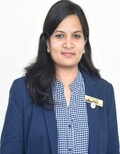
Ashwini Appaji
IEEE, Bangalore, India
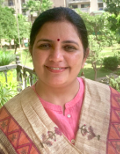
Divyashikha Sethia
Delhi Technological University, India




